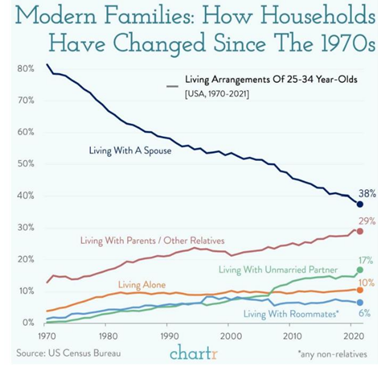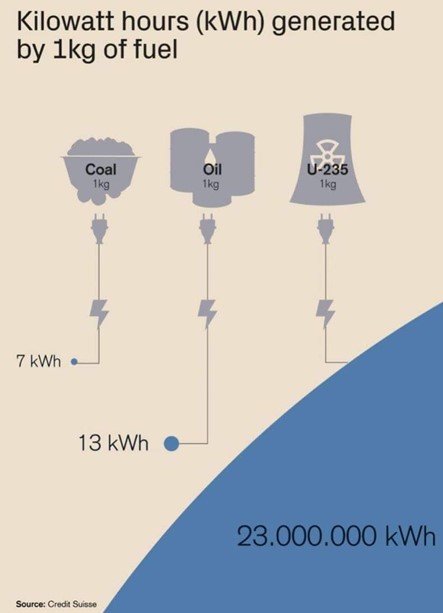Wealthsimple valuation slashed nearly in half by largest shareholder, Power-controlled IGM
IGM Financial Inc., a subsidiary of Power Corp. of Canada, revealed in its second quarter financial statements released late Thursday that it had cut the valuation of its 24-per-cent stake in Wealthsimple to $492-million as of June 30, a 47-per-cent drop from its $925-million carrying value on March 31. IGM now carries its Wealthsimple stake at 42.6 per cent of its $1.153-billion valuation as of last Dec. 31.
In May, 2021, Wealthsimple became one of Canada’s most highly valued private technology companies when it raised $750-million at a $5-billion valuation. It was the second time in seven months that Wealthsimple had raised a nine-figure sum from private investors, as interest in its U.S. analog, Robinhood Markets, Inc., soared as millennials flocked to trading platforms to buy into meme stocks and cryptocurrencies.
Both have been hit by bad news this year. Robinhood this week said it would cut its head count by 23 per cent and revealed in its second quarter report it had experienced a drop in monthly active users and assets under custody. Robinhood previously cut 9 per cent of staff in April.
Meanwhile, Wealthsimple laid off 13 per cent of its work force in June. Wealthsimple CEO Mike Katchen said at the time clients were now “living through a period of market uncertainty they’ve never experienced before.” IGM’s statements Thursday suggest that uncertainty is weighing on Wealthsimple’s outlook and performance.
Unwanted debt from buyout boom stuck at investment banks
It is a dramatic shift from the start of the year, when banks were finalising debt for megadeals such as Advent International and Permira’s buyout of McAfee, worth more than $14bn, and Hellman & Friedman and Bain Capital’s $17bn purchase of Athenahealth. Even better, they were getting calls from buyout giants such as Blackstone, KKR and Carlyle as they plotted a $25bn carve-out of Sandoz from Novartis and soon would have a surprise deal, Elon Musk’s $44bn takeover of Twitter, to finance.
But then interest rates shot higher. Investors began to bet that the Federal Reserve would need to dramatically tighten policy to curb inflation, a move that sent bond prices tumbling, including the debt banks were holding on their own balance sheets to fund deals. In quick succession, Russia’s invasion of Ukraine and lockdowns in China to slow the spread of Covid-19 hit markets, and investors began to prepare for recession.
Banks provide a critical function for the leveraged buyout industry, as buyout funds take companies private with a mixture of their investors’ own cash and a substantial portion of borrowed money that is raised from groups of lenders.
Wall Street lenders step in when a takeover is first struck, guaranteeing to provide loans, junk bonds and revolving credit facilities for the deal. But there is often a significant lag between when a deal is agreed and when it is consummated, as the companies must win shareholder backing if they are publicly traded and clear any regulatory hurdles.
The financing packages can be hugely lucrative but they carry sizeable risks if the market shifts from when banks and private equity groups initially set the terms of the debt packages. Those terms include the yield on the debt, covenants that will protect buyers and discounts banks can offer the funds and investors who will ultimately be the long-term holders of the bonds and loans.
If they are unable to sell the bonds at those terms, banks deepen the discounts, first eating into the profits they had hoped to earn on the deal. As the discounts rise, banks begin to pay for the difference out of their own pockets.
Airplane-Parts Shortage Threatens More Disruptions to Air Travel
“We’re finding it really hard to get our hands on parts,” said Steve Rossum, chief executive of Florida-based Silver Airways LLC, which flies primarily to Caribbean destinations.
Mr. Rossum said one or two of his airline’s roughly 20 planes have been grounded on any given day due to needing parts, often those related to air-conditioning. One plane was marooned for more than a week with a broken axle because it was difficult to get specialized tools, he said.
German airline Deutsche Lufthansa AG has had to ground some aircraft because of waits for various components that are taking longer to source, people familiar with the matter said. Whereas the airline group had previously been able to source missing items from within Europe, it has had to broaden the search for some parts across the globe, especially for rarer items such as panels for its cabin interiors, one of the people said.
Qatar Airways has been avoiding disruptions by taking the unusual, and expensive, step of keeping aircraft—including one of its eight Airbus A380 superjumbos—on standby in case planes can’t fly because of parts shortages, said CEO Akbar Al Baker.
Toronto rents soar 20% to record amid high demand, fewer listings
The pandemic led to a sharp increase last year in apartments listed as people left city centres. Now, as the COVID crisis eases, some of them are returning. Rising interest rates, meanwhile, will price many potential homebuyers out of the market and keep demand elevated for rental units.
“Expect rental market conditions to tighten further in the coming months,” Kevin Crigger, president of the real estate board, said in the statement.
Rents hit four-year lows last year as demand dried up and listings surged. The previous record for one-bedroom rents was $2,262, reached in the third quarter of 2019.
Record container ship traffic jam as backlog continues to build
Port congestion had finally looked like it was easing in May and early June. Ship queues had fallen back to double digits. There were 92 vessels waiting offshore as of June 10, led by 25 off Savannah, Georgia, 20 off Los Angeles/Long Beach, 18 off New York/New Jersey and 14 off Houston.
Then things turned for the worse. The tally rose to 125 on July 8, 136 on July 13 and 140 on July 19.
With the count now rising to 153, the North American container ship queue has increased in size by 66% over the past seven weeks.
Fun finds
EdgePoint anniversaries
Internal EdgePoint partners have a tradition of bringing in food or treats on their work anniversaries. A recent example was a Hot Ones - inspired hot sauce tasting challenge with nuggets and chips. The sauces were chosen more for flavour than heat because we like each other, but they definitely had some kick to them.
Nine EdgePointers started the gauntlet, with only two failing to make it to the end. The rest of the sauces went into the communal fridge to help spice up future meals.
The Disastrous Record of Celebrity Crypto Endorsements
Matt Damon started touting crypto investing when Bitcoin was worth twice as much as it is now. Mike Tyson’s NFTs have plunged more than 90% since he introduced his collection. And investors who allege they lost millions on a pump-and-dump scheme are suing Paul Pierce.
Months into a rout for crypto assets, the full extent of the financial pain suffered by millions of everyday Americans is still being calculated. What's clear, though, is that scores of celebrities touted the life-changing power of crypto investing at the worst possible time — just as the speculative mania was approaching its peak. The entreaties to get involved in the space came in multiple forms — everything from big-budget TV ads trumpeting particular exchanges to cryptic tweets touting obscure tokens.
Scarcity is an Ally of Appreciation
I never really put much thought into time management when I was young.
Now I’m much more deliberate with how I spend my time, mostly out of necessity. Responsibilities tend to increase with age so juggling work, family, friends, health and hobbies is no easy feat.
No one has it all figured out when it comes to balancing out your time allocation but here are some thoughts from my experience:
- I’ve learned to love routine when it comes to time management. There’s still room for chaos and spontaneity on occasion especially when you have kids but it’s nice to have a regimen to fall back on for some stability in an unstable world.
- Downtime in middle age is harder to come by. When kids come along one of the biggest things that goes to the wayside is downtime.
- Spending money on time is a good investment. One of the unsung reasons a lot of people choose to work with a financial advisor is because they value their time.
- Trading too much time for money probably won’t pay off. The perfect amount of balance in life is probably unattainable but too much time spent chasing money typically isn’t a good investment.
- Scarcity can add meaning and clarity. Maybe knowing the time you have to spend with loved ones is fleeting can help you appreciate it even more while you have it.
People Spend Too Much Time On Decisions with Equally Satisfying Outcomes
Researchers found that people spent longer choosing between options that were roughly equal in value than between options in which there was a large value disparity.
“Value” here means how much participants said they would be willing to pay for each item at the start of the study.
When shown a disfavored food alongside a favored food, people chose fast. When shown a favored food alongside another favored food, people took a while. But this is irrational (at least in the economic sense).
When making decisions, we spend too much time choosing between options with roughly equal utility.


































